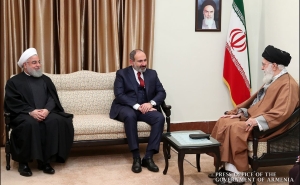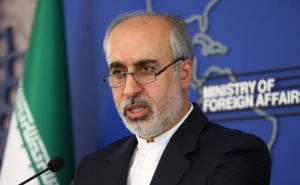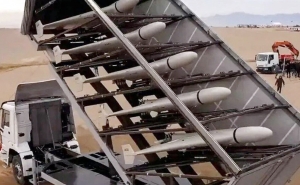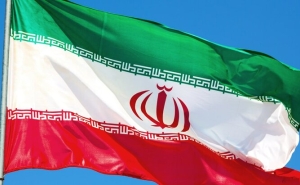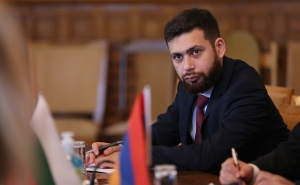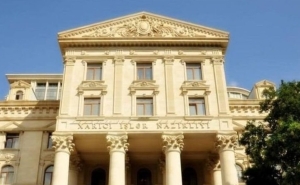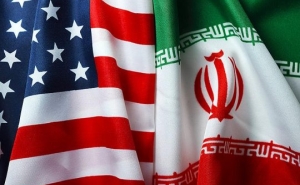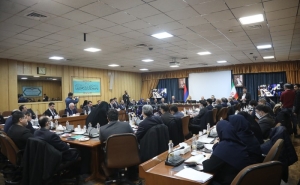 Iran after the Elections: What will Change Inside and Outside the Country?
Iran after the Elections: What will Change Inside and Outside the Country?
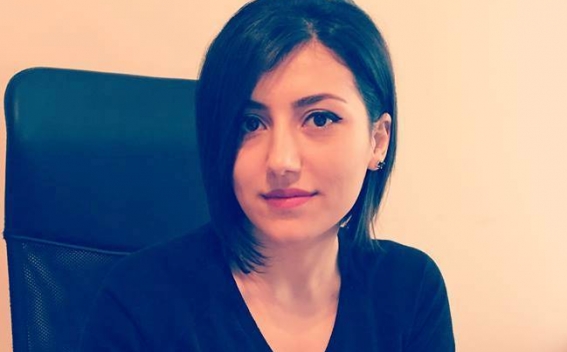
The Islamic Republic of Iran summarizes the results of the elections of Parliament and the Assembly of Experts. Before the elections reformists and moderates formed a coalition and presented a joint list which was named "Hope List". Their main rival was the conservative camp.
Reformist Front declares its victory. They managed to get all the 30 parliamentary seats that were given to Tehran. As for rural areas, conservatives had stronger positions, as it was expected. In general in result of the first round of elections 80 reformists and 60 independent candidates (most of them moderates) entered the Iranian parliament. Conservatives won 76 of 290 parliamentary seats (there are no final results yet). Competition for the remaining 62 seats will continue in the second round of elections. Armenian community in Iran as a religious minority has two seats in the Iranian parliament. This time Karen Khanlarian and George Abrahamian have been elected.
The elections of the Assembly of Experts that elects the Supreme Leader and controls his activity were no less important as the members of the Assembly may choose a new leader within 8 years taking into account the rumors about the 76-year-old leader Ayatollah Ali Khamenei's health. It is notable that the positions of reformists have been strengthened in this important Assembly. They managed to get 52 of all 88 seats.
In reality it is hard to speak about the victory of any side and there are several reasons. First of all, the dividing line between reformists and conservatives is not clear at all. Secondly, most of the reformists have been deprived of the opportunity to participate in the elections by the Iranian Guardian Council of the Constitution. Thus, it is hard to speak definitely about the victory of reformist and conservative camps or their clear partition.
The elections were very important for the Iranian President Hassan Rouhani who will probably again run for the presidential elections next year. These elections have been somehow considered to be a public support test for his foreign policy. And it is expected that the "victory" of his supporters will strengthen his positions inside the country and give him a chance to continue the cautious policy of easing tensions with the West and economic reforms.
In general, it is also a positive impulse for the Middle East, where the struggle between the Shiite and Sunni forces has got a new impetus. The policy of easing tensions with the West and Iran’s new role will give a chance to avoid further tensions in the region that is already explosive.
Of course, one should not forget that Iran has theocratic structure and closed political system, where the whole power, in fact, comes out from the country's Supreme Leader. He directly or indirectly controls the executive, legislative and judicial authorities as well as the military forces. All the important decisions concerning Iran’s internal and foreign policy are made in accordance to his consent.
Thus, it is not realistic to expect that the new parliament or the Assembly of Experts can bring serious changes in the country's life, especially in terms of the foreign policy.
-
 17:08
17:08The regular session of the Anti-corruption Policy Council takes place in Jermuk
-
 15:05
15:05The Prime Minister sends congratulatory messages to the supreme leader of Iran and the President of Iran
-
 11:11
11:11Armenia sends earthquake aid to Turkey
-
 10:43
10:43Commemoration of the Pontiff St. Sahak Partev
-
 09:16
09:16Some roads are closed and difficult to pass in Armenia
-
 19:55
19:55Phone conversation of the Foreign Minister of Armenia with the U.S. Assistant Secretary of State for European and Eurasian Affairs
-
 18:30
18:30Prime Minister Pashinyan and President Khachaturyan meet
-
 18:20
18:20Ararat Mirzoyan with Co-Chairman of the OSCE Minsk Group of France Brice Roquefeuil
-
 17:01
17:01Humans could land on Mars within 10 years, Musk predicts
-
 16:45
16:45France, US urge 'immediate' end to Nagorno Karabakh blockade
-
 16:01
16:01Blockaded Nagorno Karabakh launches fundraiser to support quake-hit Syria
-
 15:59
15:59Earthquake death toll in Turkey rises to 18,342
-
 15:43
15:43Ararat Mirzoyan Held a Telephone Conversation with Sergey Lavrov
-
 15:06
15:06French president rules out fighter jet supplies to Ukraine in near future
-
 14:47
14:475 Day Weather Forecast in Armenia
-
 14:44
14:44President Vahagn Khachaturyan wrote a note in the book of condolences opened in the Embassy of Syria in Armenia
-
 14:20
14:20Azerbaijan’s provocations impede establishment of peace and stability – Armenian FM tells Russian Co-Chair of OSCE MG
-
 12:57
12:57France representation to OSCE: Paris calls on Azerbaijan to restore freedom of movement through Lachin corridor
-
 11:40
11:40Command of Kosovo forces highly appreciated preparation of Armenian peacekeepers
-
 10:16
10:16The United States withdrew from sanctions against Syria for six months the provision of assistance after the earthquake
day
week
month
Humidity: %
Wind: km/h


